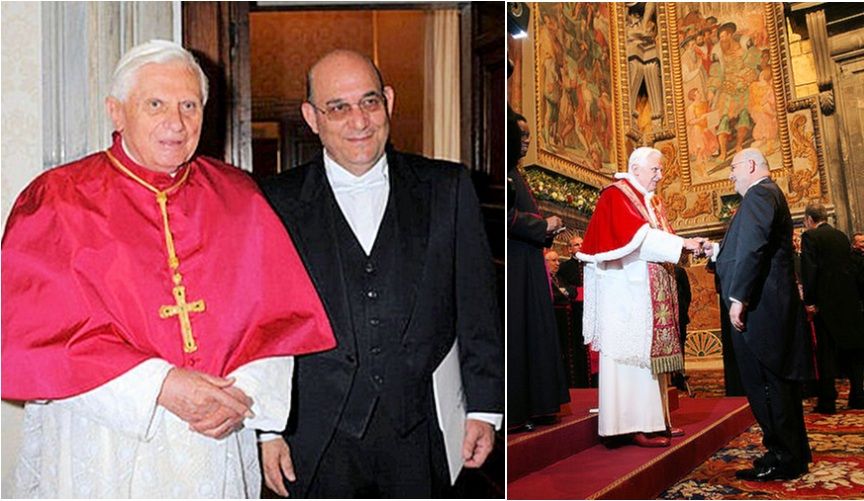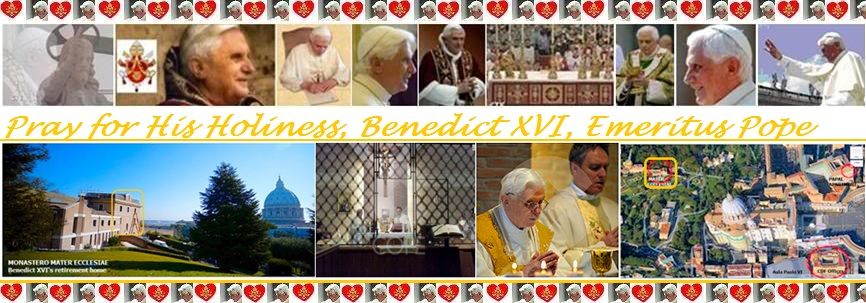
 Friday, July 12, 2013, 14th Week in Ordinary Time
Friday, July 12, 2013, 14th Week in Ordinary Time
 I have been unable to find individual images online. hence these generic pictures.
SAINTS JOHN JONES (1530-1598) and JOHN WALL (1620-1679), Franciscans and Martyrs
I have been unable to find individual images online. hence these generic pictures.
SAINTS JOHN JONES (1530-1598) and JOHN WALL (1620-1679), Franciscans and Martyrs
Jones, who was Welsh, and Wall, who was English, both became Franciscans after years as being diocesan priests. They lived a century apart, but their biographies
were similar. Both went abroad for some time and returned to England to serve in secret during times of great anti-Catholic persecution. Both were eventually arrested,
imprisoned and executed - hanged, drawn and quartered according to the practice of those days. They are among the 40 men and women of England and Wales who
were martyred between 1535 and 1679, and were canonized together in October 1970. The Feast of the 40 Martyrs is celebrated on Oct. 25.
Readings for today's Mass:http://www.usccb.org/bible/readings/071212.cfm
AT THE VATICAN TODAY
No bulletins from the Vatican today.
One must assume the Pope is hard at work preparing for WYD in Rio de Janeiro - he leaves July 22 - where he is scheduled to give ___ addresses and __ homilies. Though he may well choose to extemporize most, if not all, of his discourses at WYD and the side trip he is making to Aparecida before he joins the WYD festivities.
 One year ago...
One year ago...
There were no events announced for Benedict XVI either, but the Vatican issued its bulletins on the concert for the Pope the preceding day and the visit of Italian President Giorgio Napolitano whom the Pope invited to the concert in Castel Gandolfo. The OR that day featured this interview with President Napolitano.
 'My friend Benedict XVI'
'My friend Benedict XVI'
Interview with President Napolitano
by Mario Ponzi
Translated from the 7/13/12 issue of

Benedict XVI welcomes and greets him with the warmth that one has for a longtime dear friend. Maestro Daniel Barenboim called him "the architect of the event Wednesday evening, a historic night, at Castel Gandolfo.
He, the President of the Italian Republic, expresses his great satisfaction at bringing closer together two men who are spreading the same message of non-violence and peace.
One, the Pope, with his words that resound in every corner of the earth. The other, Maestro Barenboim, who has been doing the same to the rhythm of a symphony of peace interpreted by young musicians who are Israeli, Palestinian, Syrian, Lebanese, Egyptian, American, German, Spanish and Argentine.
With his innate sincerity, his exceptional openness to dialog about the great as well as small things of life, President Napolitano gladly accepted to speak to us.
Cardinal Ravasi first and then Maestro Barenboim revealed a small secret last night: that you were the inspiration and architect of the evening that goes far beyond their exceptional artistic and cultural value. Could you explain why you so wanted this occasion?
For many years, I have known and have had a relationship of admiration and friendship with Maestro Barenboim. I also got to know his youth orchestra quite well. That is why I was very happy to give to them the Dan David Prize which was given to me on May 15, 2011 [a one-million-dollar prize] to this orchestra to help them consolidate and develop their activity in the world.
I have watched marvelous images of their concerts around the world. I was very struck by a concert they held in Ramallah
[provisional Palestinian 'capital' on the West Bank]: it is incredible how these young people have succeeded to bring together so many diverse young people, how music is able to give what governments and politics have not succeeded to give, namely a sense of peace, of participation, of sharing common values that foster solidarity and spirituality. Values that can truly facilitate the solution to a long-standing and tragic problem such as the relations between Israelis and Palestinians. So I wanted the Pope to be aware of them.
When did you have the idea to bring them together?
Some time ago, I had the chance to speak to him personally about this youth orchestra, of the message they were bringing to the world. The Pontiff immediately grasped this significance and wanted to know more. Then, the great gift - the gift he has given this young people to welcome them to his own home. Even for Maestro Barenboim, this is a great gift. I am profoundly touched by the Pope's highly sensitive gesture.
Where does your obvious harmony with Papa Ratzinger come from?
It has been six years since my mandate [as Italian President]. The seventh and last year began in May. I do not hesitate to say that one of the most beautiful components that chas haracterized my experience as President has been, precisely, the relationship with Benedict XVI.
Together we discovered our great affinity, we have lived together a feeling of great and reciprocal respect. But there is more, something that has touched our hearts. And I am very grateful to him for this.
Today, for instance, our get-together was characterized by simple humanity. We walked together, spoke to each other face to face with a relationship of frank friendship, with all the deference that I have for him and for his most elevated mission.
Of course, the Pope, besides being a head of State, is also and above all, the leader of the universal Church. We feel close to each other if only because we are both called on to govern complex realities. ( find myself leading the institutions of the Italian Republic at a moment that is very, very difficult, It is necessary in this context, to see to it that strong motivations for serenity, peace and moderation must prevail. And I feel very deeply this mission as a moderator. Imagine, therefore, the analogous mission that the Pope has!
And of course, you are united in the ideal of peace...
I believe that the continuous appeals of the Pope for peace are welcomed and shared by so many men around the world. Of course, exhortations to peace, especially in areas like the Middle East, are opposed by a certain 'incanceration' of conflicts and differences. And this always happens when decades and decades pass without finding a solution - something becomes transformed into an incrustation that is very hard to break. Each of us does what we can, and the Pope can do a lot through his inspiration, the constancy of his actions. This, at least, is my hope.
How do you see Benedict XVI's relationship with Italy?
I will never forget the message that he sent us on the occasion of the 150th anniversary of Italian unity. I carry it and will always carry it with me as a legacy of my presidency. It was to be expected that we would get a cordial and formal message, but not as committed and engaged as his words in the letter which we did get, which including a historical analysis. This truly demonstrates that in Italy, the State and the Church, the people of the Republic and the people of the Church, are so profoundly and intimately united.
Another interesting story from a year ago concerns B16's relationship with the Jews, in the eyes of the then outgoing ambassador from Israel, Mordechai Lewy,
 MSM - and the world at large - have under-estimated the ways in which Joseph Ratzinger - as cardinal and now as Pope - has advanced relations with the Jews, for the simple reason that reporting has tended to focus on controversies such as the Good Friday prayer or the cause for Pius XII's beatification. So it is refreshing when a prominent Jew cites the significance of a personal gesture by Joseph Ratzinger/Benedict XVI that was universally appreciated, and not just by Jews... With his knowledge of Hebrew and as a lifelong student of Scriptures, he has probably been the most 'informed' Pope in modern times about Judalsm.
Outgoing Israeli envoy says
MSM - and the world at large - have under-estimated the ways in which Joseph Ratzinger - as cardinal and now as Pope - has advanced relations with the Jews, for the simple reason that reporting has tended to focus on controversies such as the Good Friday prayer or the cause for Pius XII's beatification. So it is refreshing when a prominent Jew cites the significance of a personal gesture by Joseph Ratzinger/Benedict XVI that was universally appreciated, and not just by Jews... With his knowledge of Hebrew and as a lifelong student of Scriptures, he has probably been the most 'informed' Pope in modern times about Judalsm.
Outgoing Israeli envoy says
Israel is very grateful to
Benedict XVI for clarifying
'deicide' issue in JON-2

 Ambassador Lewy with Benedict XVI.
Ambassador Lewy with Benedict XVI.
ROME, July 10 (Translated from TMNews) - The outgoing Israeli ambassador to the Holy See, Mordechai Lewy, underscored the great importance attached by his country to Pope Benedict XVI's concern to dispel the myth that Jews were guilty of deicide by killing Jesus of Nazareth - a belief that has been part of Catholic tradition among many communities through the centuries.
[The second volume of Joseph Ratzinger-Benedict XVI's JESUS OF NAZARETH generated much worldwide news because of the pages in which the Pope rejects the very idea of deicide by the Jews, as did the Council of Trent in the catechism that was published at the height of the Counter-Reformation, and as the 1992 Catechism of the Catholic Church also does. It's a commentary on the dynamics of communication that not even Catholic media cited the official catechetical precedents to the Pope's assertions - obviously out of sheer ignorance of what the Church has said before on this very sensitive issue.]*
Ambassador Lewy, whose successor as envoy to the Holy See is expected to arrive next week, spoke at a news conference about the four years he spent in Rome.
"From a professional standpoint," he said, "my work turned out to be far more interesting than I had expected". Among the events in which he played a key role were Benedict XVI's visit to the Holy Land in May 2009, his visit to the Great Synagogue of Rome in January 2010, and what he called 'the great progress' made in the legal-economic bilateral negotiations that Israel and the Holy See have been carrying on for almost two decades since they first established diplomatic relations.
[These negotiations involve, among other things, taxes that Israel would impose retroactively on Church properties in the Holy Land, the lack of juridical status for the Church in Israel, as well as control of holy sites such as the Cenacle on the spot where tradition says the Last Supper and the Pentecost both occurred, or shrines in Caesarea associated with the Risen Christ.]
Then he called attention to
"a point that has not been recalled enough - Pope Benedict's words absolving the Jews from responsibility for the crucifixion of Jesus, in the second volume of his biography of Jesus of Nazareth".
It was an idea, he said, that was prevalent during the Second Vatican Council, but which has been "reiterated effectively by Papa Ratzinger".
In the book, the Pope says that the term 'Jews' used in the Gospel for those who accused Jesus had no 'racist overtones' if only because Jesus and all his followers were Jews themselves", and that the term certainly did not refer to all Jews.
Lewy recalled that after the book was published, Israeli Prime Minister Benjamin Netanyahu sent a formal message thanking the Pope for his words, and soon thereafter, sent a giant olive tree that has been planted in the Vatican Gardens.
Lewy also cited two 'questions of an ecclesial nature' affecting Israeli-Vatican relations. The first is that, with the increase in Christian emigration to Israel (mostly from Russia and the Philippines) in recent years - which implies that in the near future, the majority of Christians in Israel will be non-Arab - the person named by the Church to be in charge of the 'Jewish Christians' is the Jesuit priest David Neuhaus, who is the Vicar of the Latin Patriarchate of Jerusalem, and could very well be the next Patriarch.
The second fact he pointed out was that in 1293, when the Mameluke Turks conquered the Holy Land, the Christian see of Nazareth was not a diocese but merely the titular See of the Bishop of Trani-Barletta in Puglia (southeastern Italy).
[I don't follow his point here, because the Latin Patriarchate of Jerusalem is a true and proper diocese within the territory of Israel, and the Church has multiple active interests in Israel. That is why she is seeking a juridical personality there, as she enjoys in other countries.]
Questioned about various other current events, Lewy said he was not involved at all in the decision of Yad Vashem officials to modify a negatively one-sided caption denouncing Pius XII for 'silence and inaction' about Nazi persecution of the Jews during World War II.
He also disputed the rumor widely reported in the Western media last month that the Vatican was ready to 'indirectly recognize' Israel's jurisdiction over East Jerusalem, claimed by the Palestinians as their capital, though Israel has held the entire City of Jerusalem since it defeated attacking Arab armies in the 1967 War.
When he was asked how he thought the Vatileaks episode has affected the Pope, Lewy said: "He is a strong man. I don't think he gets rattled easily". He paid his farewell visit to the Pope last June 29.
*
The worldwide reaction - of surprise and pleasure - at the Pope's words 'exculpating' the Jews of deicide in JON-2, would seem to underscore that what the Pope says or writes makes news in a way that formal catechisms and other texts of the Church do not. Which, in turn, underscores the capital importance of a Pope's Magisterium, in which the content that a Pope chooses to emphasize and the communicative power with which this is transmitted to the faithful are very much a function of the individual Pope.
While the Magisterium of the Popes may all be identical in adhering to the deposit of the faith as it has accrued over the centuries, the effects of their teaching vary according to the Pope. Benedict XVI's papacy happens to be distinguished - a fact that is univerally acknowledged, even by his critics - by his emphasis on the essentials of the faith (and the outstanding Christians, known and unknown, who exemplified this faith best), presenting them as the Fathers of the Church did in the early centuries of Christianity. As truths rooted in Scriptures and the Jewish culture in the time of Jesus, and illumined by the reflections of the Church's greatest thinkers and mystics, erudite as well as unlettered men and women, to whom and through whom God spoke. It is to the Pope's advantage that even the MSM are much more likely to pay attention to what he says than they have been with other Popes. including Blessed John Paul II, whose mediatic presence became the focus of reporting to the virtual neglect of what he said.]
Apropos Ambassador Lewy's record as ambassador to the Vatican, he has not been shy to express views that get off the beaten path of Israeli and Jewish political correctness. As Christopher Blosser highlighted from an interview Lewy gave to the Boston Glo be in 2009: On the administrative powers of the Pope ("From the books you can see that it is an absolute monarchy, but it is not. Far, far from that"); on Israel's interest in preserving its Christian population ("It's not a question. We are obliged to"); on the matter of visas and the Pope's remarks on the Holocaust ("What he contributed at Yad Vashem was a completely different approach which was an enrichment to the culture of memory, ... a wake-up from an unexpected corner for people to think a little bit differently"); and the controversy involving Pope Pius XI ("It is wrong to look for any affinity between him and the Nazis. It is also wrong to say that he didn’t save Jews").


[Modificato da TERESA BENEDETTA 25/08/2013 08:34]